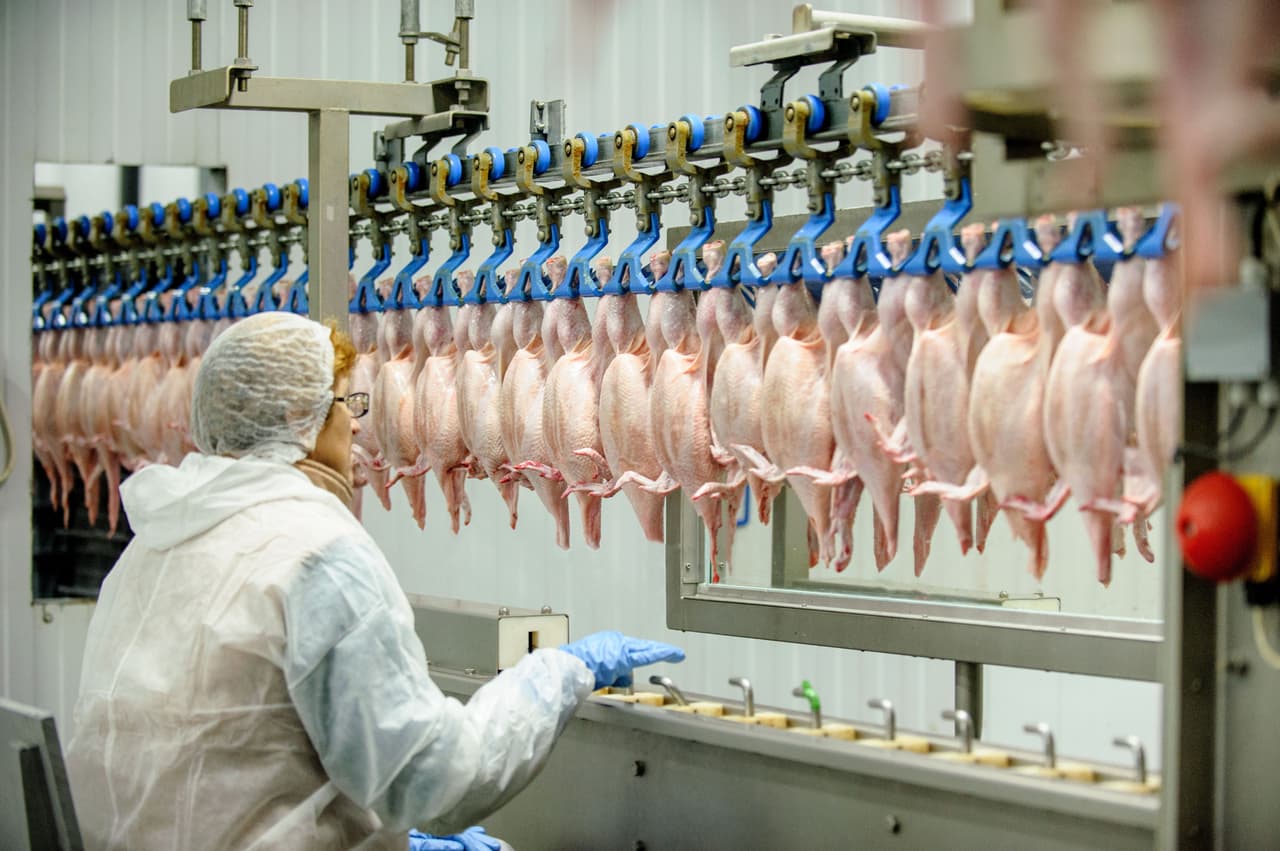
Bullying, harassment and physical assault: Abuse faced by inspectors inside UK slaughterhouses
Vets and meat hygiene inspectors working in abattoirs face regular abuse, bullying and harassment, an investigation has found, hampering food safety and animal welfare checks.
Data obtained by the Bureau reveals meat hygiene inspectors and vets working for the Food Standards Agency (FSA) had to be withdrawn from abattoirs for their own safety on more than twenty occasions between January 2013 and July 2016.
The FSA’s records show there were a total of 180 reported incidents of bullying and harassment during that time period, including 106 instances of verbal abuse, 51 incidents involving aggressive behaviour, seven physical assaults and 15 acts of intimidation, among others.
Unions say the problem is far more widespread than the figures suggest, with many incidents going unreported. A Unison survey of meat hygiene inspectors last year found that half of all respondents had been the victim of bullying and harassment. One inspector said the situation was so bad he had considered suicide, according to the union.
An industry source told the Bureau there was “plenty of day-to-day abuse that is just accepted as part of the culture and environment.”
Two thirds of Unison’s survey respondents said that the people responsible for the bullying were either meat plant owners or workers.
“Our annual survey is the real picture,” said Unison’s Paul Bell. “It shows that our members who serve the public and protect our meat supplies are being bullied out of the job”.
How bullying hinders inspections
There are around 850 meat hygiene inspectors and official veterinarians working in abattoirs in England and Wales, tasked with checking whether animal welfare and hygiene standards are being met. The FSA told the Bureau that bullying and harassment “can seriously impact on or even prevent [inspectors] from carrying out our regulatory role”.
Although many of the abattoirs where incidents have taken place are smaller facilities supplying butchers shops or wholesale markets, plants operated by large meat processing companies also appear in the FSA data.
In most instances, the data reveals, abuses were dealt with by a letter to the Food Business Operator (FBO), a mix of formal and informal meetings or other – unspecified or unrecorded – action. Mediation was used in 16 cases.
Formal investigations were launched on seven occasions, the records show, and six cases – including three involving aggressive behaviour, one incident of intimidation, one of verbal abuse and one assault – were referred to the police. On 21 occasions, the FSA was forced to take the most drastic action and withdraw inspection staff from the premises concerned.
The agency told The Bureau that due to the significant effect this can have on the commercial operation of an approved premises - because abattoirs are required to have inspectors on site - the withdrawal of service “would be a measure of last resort and where other options would be insufficient to protect the health and safety of FSA staff.”
Calls for compulsory CCTV in abattoirs
The situation was described as “wholly unacceptable” by leading food industry expert Tim Lang. “The public buys food expecting it to be safe, yet here we see levels of inappropriate management and poor work culture which help explain why food poisoning statistics stubbornly fail to come down,” said Lang, a professor of food policy at City University. "The Food Standards Agency has been weakened by cuts but it must be held to account."
Henry Smith, Conservative MP for Crawley and co-chair of the All-Party Parliamentary Group for Animal Welfare, said there was an “endemic abuse problem” affecting parts of the abattoir sector. The Bureau’s findings “highlight even more the case for compulsory independent CCTV monitoring of their activities,” he said. “Such offensive behaviour is both a risk to public health and animal welfare standards."
Campaigners expressed concern over the potential impact on animal welfare and food hygiene standards.
“These incidents show just how bad tensions between the regulator and those being regulated have become,” said Isobel Hutchinson of Animal Aid. “Many slaughterhouse operators and those that represent them resent all oversight. The FSA must stand up for its vets and should prosecute anyone who threatens, intimidates or physically attacks them as they try to do their job.”
This story is one of a Bureau series looking at animal welfare and food security within the British meat industry
Find out moreWatchdog’s response
The FSA classifies aggressive behaviour as an incident “where the individual was subject to an episode of aggression, verbal or non-verbal.” Intimidation is viewed as an incident “where behaviour or language resulted in an individual feeling threatened.”
Physical assault involves “unwelcome physical contact, including an actual physical attack or where a person genuinely believed they were going to be attacked” and verbal abuse covers other incidents “including those that relate to the use of sexist or racist remarks.”
The FSA said it had a zero-tolerance approach towards workplace bullying and harassment. Individuals were encouraged to report incidents, whether they experienced it or witnessed it. “All allegations of bullying and harassment will be investigated and, if appropriate, action will be taken,” said a spokesperson.
Previous Bureau investigations have uncovered major hygiene and animal welfare breaches in slaughterhouses across the UK.





